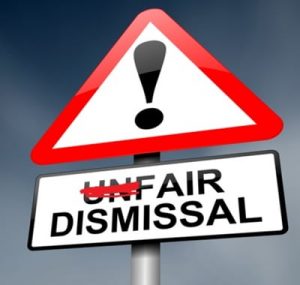UNFAIR DISMISSAL? A term slung around very often.
But what do employers need to know, and probably don’t?
A useful statement from a senior Judge of the employment court in a mediation conference was where he told both lawyers that “it is all about conducting a proper assessment of the risks and making sure your clients understand them”. When considering dismissing an employee, it is probably timely to ask yourself the question – As an employer have you considered any and all risks that termination of an employee may bring upon you?
As an employer why should you avoid unfair dismissal claims and how?
An unlawful dismissal can cost an employer in terms of time, money, and reputation. Claims can be multiple so are the remedy(s). To properly dismiss and to minimize your penalty risks, simply ask these questions from yourself, although the list is not exhaustive:
- Is termination the only way to address the employee’s conduct?
- Is this in accordance with the termination clause in the employee’s agreement?
- As a decision-maker, have you directed your mind correctly to the reason for termination and the consequences of your decision; and
- As a reasonable person in the employee’s shoes, do you consider the dismissal fair and reasonable?
What if the termination is the right call?
Whether it is a simple termination or summary dismissal, always double-check your facts, notes, and the history that led the situation to become what it is before you. At best, if the termination call is the right one, and unless the situation is not serious to warrant summary unfair dismissal, make sure that:
- You are not overreacting to a matter that may deserve a lesser action than termination;
- You have proper procedures in place to investigate the issue that gave rise to the termination and before terminating anyone;
- You give the employee a chance to narrate their side of the story within a reasonable time and accord them with the right to have support persons with them throughout the process and when you are investigating the matter before you;
- To allow a fair investigation, you provide the employee with paid leave (This may sound costly, but the result will generally be to your benefit in the long run); and
- You only terminate if the agreement allows you to do so, and ensure that you are correctly interpreting your termination clause.
What if you are unsure that termination is the right call or not?
The employer’s quagmire would be when the employer is unsure of dismissing an employee or not. Obviously, it is a natural expectation that as an employer you wish to save face with other employees, and accordingly do not want to take the wrong step. It is, therefore, always better to seek qualified employment law advice if you are unsure whether to fire or keep an employee.
Can you fire your employee when the relationship of trust and confidence is broken?
The answer may be drawn from a law maxim; “lex neminem cogit ad vana seu inutilia peragenda” which means; the law does not compel one to do useless things.
That is, if you and the employee cannot work side-by-side and you have valid reasons, providing such a term is stipulated in the employment agreement, you may terminate the employee. To do so, however, you need to ensure you have valid supporting documents as proof that the relationship of trust and confidence between you the employee, was broken such that the relationship was unsustainable. You also need to ensure that in a valid termination, all accrued entitlements are paid to the employee without delay or hindrance and that you document everything you do.
If you face the difficult task of firing your staff, for whatever reason, then speak to an experienced employment lawyer on 1800 217 217 today.
Article Source: employment law brisbane

 What is employee unfair dismissal?
What is employee unfair dismissal?